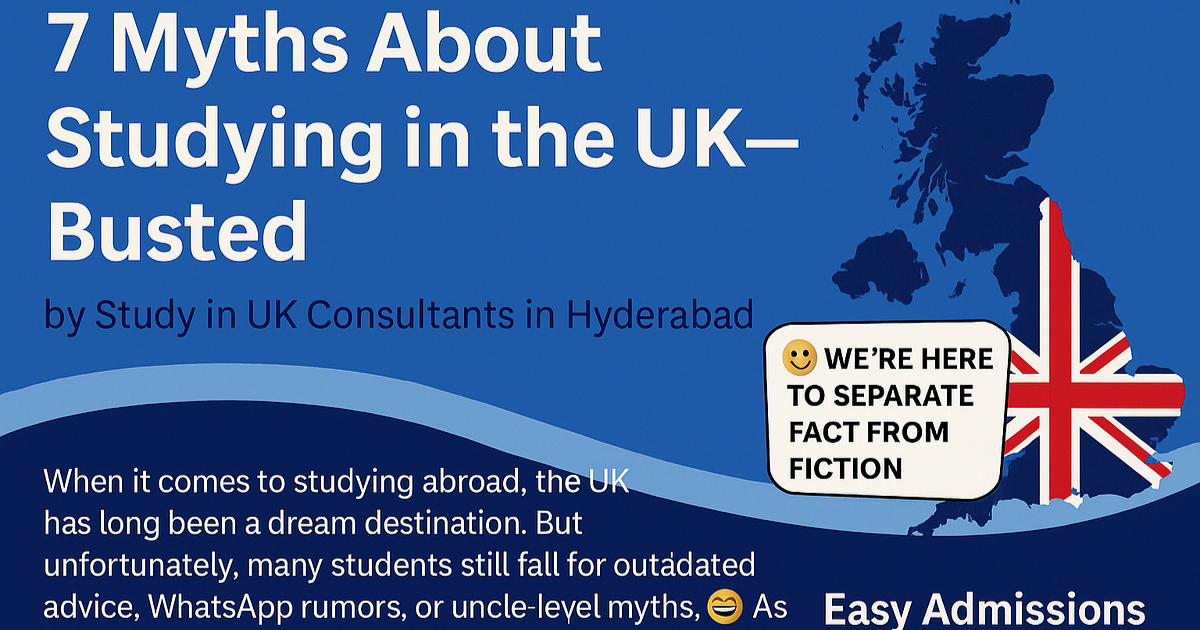7 Myths About UK University Life Busted
Tech, Finance & Specialized Education Edition
Studying in the UK has long been associated with iconic red-brick buildings, posh accents, and endless cups of tea. But beneath the clichés lies a modern, diverse, and dynamic academic world—especially in areas like tech, finance, and specialized education. Let’s bust seven common myths about university life in the UK.
Myth 1: UK universities are only about literature and history
Busted: While the UK has produced literary giants like Shakespeare and Austen, its universities are also global leaders in tech and finance. Institutions like Imperial College London, the University of Edinburgh, and the University of Manchester are internationally recognized for research in AI, fintech, cybersecurity, and data science.
Myth 2: It’s all about lectures and reading books
Busted: Modern UK degree programs in finance and technology prioritize hands-on experience. You’ll find hackathons, simulated trading floors, startup incubators, and real-world consulting projects embedded in the curriculum. These programs are designed to equip students with practical skills—not just academic theory.
Myth 3: UK university degrees take too long
Busted: Unlike in many countries where undergraduate degrees take four years, most UK undergraduate programs are completed in three. Master’s degrees often take just one year, meaning you can enter the workforce—and start earning—sooner.
Myth 4: Only Oxbridge grads get top jobs
Busted: While Oxford and Cambridge are elite institutions, top recruiters for roles in tech and finance actively hire from a broad range of universities. Schools like LSE, Warwick, Bristol, and St Andrews consistently produce high-performing graduates who go on to work in London’s financial district, global tech firms, and startups alike.

Myth 5: It’s too expensive to study in the UK
Busted: While tuition fees can be high, many universities offer substantial scholarships for international students. Plus, UK students can access government loans. Living costs vary widely by city—studying in cities like Sheffield or Glasgow is significantly cheaper than London. And that shorter degree length? It saves money in the long run.
Myth 6: International students won’t fit in
Busted: UK campuses are highly multicultural. In tech and finance programs, international students often make up 30-50% of the cohort. Universities have strong support networks for overseas students, including cultural societies, mentoring programs, and dedicated career services.
Myth 7: Specialized degrees limit your career options
Busted: Degrees in areas like fintech, AI, or actuarial science don’t pigeonhole you—they open doors. UK employers value depth and specialization, especially in STEM and finance. In fact, these fields often lead to Tier 2 skilled worker visas, which allow graduates to stay and work in the UK post-study.
Final Thoughts
University life in the UK is far more innovative and inclusive than the old stereotypes suggest—especially in tech, finance, and specialized education. Whether you’re aiming for a career in AI, investment banking, or data science, UK universities provide a competitive, global platform to launch your future.
Let me know if you want this adapted for a specific publication or audience!

